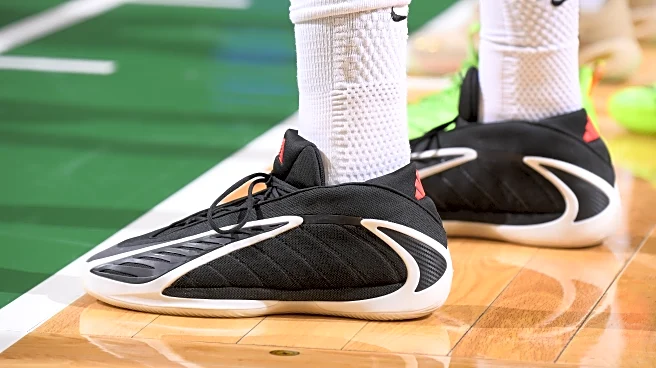What's Happening?
A Chicago resident, Benjamin Jankowski, has filed a class action lawsuit against Home Depot, alleging the unauthorized use of facial recognition technology at its self-checkout kiosks. The lawsuit claims that Home Depot violated the Biometric Information Privacy Act (BIPA) of Illinois by collecting biometric data without obtaining written consent from customers. Jankowski noticed the facial recognition technology during a visit to a Home Depot store in Chicago on June 22, where he observed a camera and display capturing his facial data without any prior notification or signage. The lawsuit seeks damages of up to $5,000 per violation, which could amount to millions given the 76 Home Depot locations in Illinois. This legal action follows a precedent set by the 2019 Rosenbach v. Six Flags case, where the court ruled in favor of plaintiffs for technical violations of BIPA, even without actual misuse of the data.
Why It's Important?
The lawsuit against Home Depot underscores the growing concerns over privacy and the use of biometric data by businesses. The outcome of this case could have significant implications for companies operating in Illinois and potentially influence biometric data policies nationwide. If Jankowski's lawsuit is successful, it could lead to stricter enforcement of BIPA and encourage other states to adopt similar privacy protections. Businesses may need to reassess their data collection practices to ensure compliance with privacy laws, which could involve increased costs for implementing consent mechanisms and data security measures. Consumers stand to gain greater control over their personal data, while companies could face financial penalties and reputational damage if found in violation of privacy laws.
What's Next?
The legal proceedings will determine whether Home Depot's use of facial recognition technology without explicit consent constitutes a violation of BIPA. The case may prompt other consumers to file similar lawsuits if they believe their biometric data has been collected unlawfully. Additionally, businesses across Illinois and potentially other states will likely monitor the case closely to understand its implications for their operations. Depending on the outcome, there could be a push for legislative changes to strengthen biometric data protection laws, both at the state and federal levels.
Beyond the Headlines
The case raises ethical questions about the balance between security measures and individual privacy rights. As businesses increasingly adopt advanced technologies for security and operational efficiency, the potential for misuse or unauthorized data collection grows. This situation highlights the need for transparent data practices and robust legal frameworks to protect consumer rights. The broader societal debate on privacy versus security is likely to intensify as technology continues to evolve.










